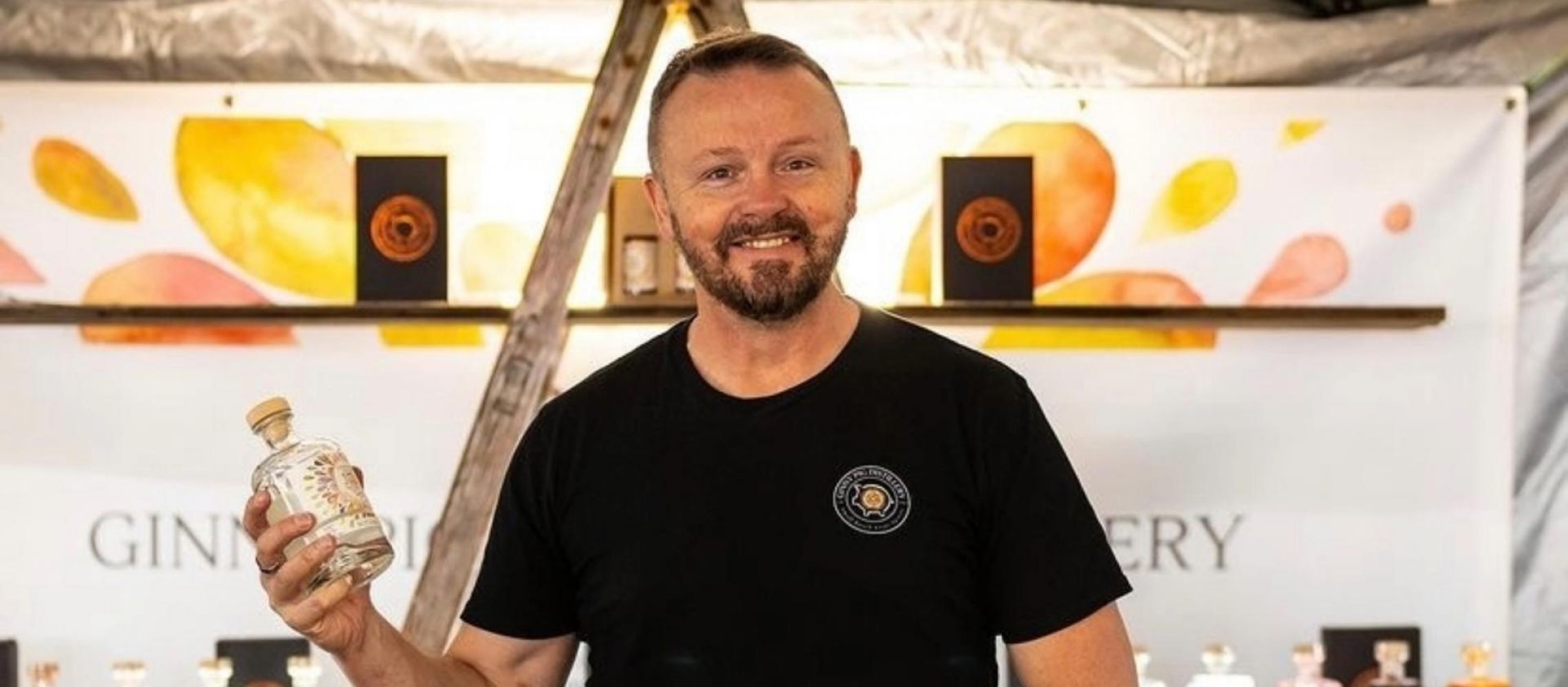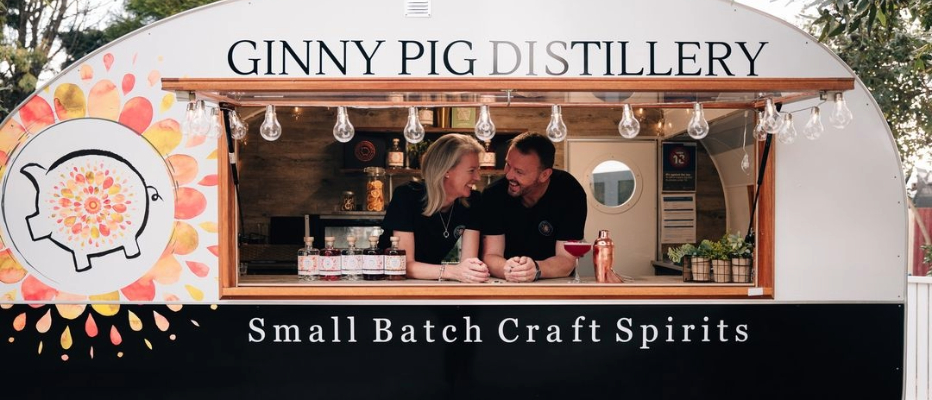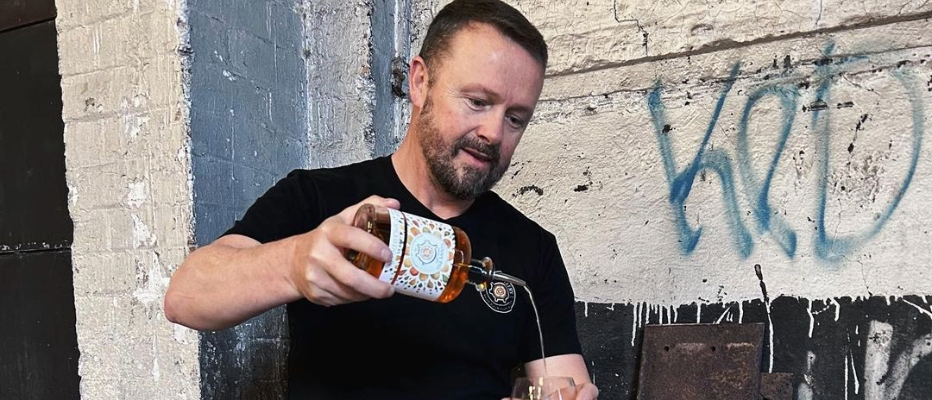Submission Deadline
28 February 2026
Judging
Date
24 & 25 March 2026
Winners Announcement
22 April 2026
28 February 2026
24 & 25 March 2026
22 April 2026

At a time when Craig Cooper was looking for a change in his career, he started playing around with spirits and discovered his passion for distilling. He instantly quit his nursing job of 25 years to focus on his new-found vocation. Soon, he and his wife, Bec Cooper, applied for licenses, started making gin and launched their Ginny Pig Distillery in 2020, where he is the Head Distiller now. Their flagship gins, Botanic Gin and Spiced Fig Gin, have earned accolades, including medals at the London Spirits Competition. Craig spoke with the London Spirits Competition about the journey behind Ginny Pig Distillery, the challenges of crafting premium spirits, and the promising future of Australia's craft distilling scene.
As a joint owner and Head Distiller at Ginny Pig Distillery, my schedule varies every day. But on a typical day, you will see me running the still, which takes 6 to 7 hours to heat up. I also do some general maintenance around the distillery, bottling, labelling and more
If you are particularly a gin distiller, you should have a thorough understanding of which botanicals complement each other and which don’t. Equally, it is important to master the ideal speed for running the still, as well as determining the right temperature and timing.
A good distiller is someone who listens to their peers and industry leaders, remaining open to feedback and constructive criticism. They understand the importance of continuous learning and never close themselves off to new ideas. Above all, they are experts in their craft, mastering every aspect of the distillation process and always striving to refine their skills.
Also read: From IT to Spirits: Gary Ford on His Evolving Distilling Journey

Image Title and Credits: Craig Cooper and Bec Cooper
Being a small batch craft distillery, we can create unique products that larger distilleries simply can’t match. While our volume may be lower, our focus on craftsmanship allows us to maintain higher standards. We’re always exploring new markets, looking to introduce our exceptional products to a wider audience and build lasting connections with customers.
Botanicals aren't always the same—different harvests, varying climate conditions, and other factors can lead to subtle changes in flavour and aroma. As a result, getting an end product that matches the quality and profile of the last batch can be challenging. Maintaining consistency requires precise monitoring, adjustments, and a keen understanding of the process.
A distiller can play a key role in driving marketing and sales by leveraging their personal connection to the product. For instance, I don’t think anyone can sell my product better than I do. I have a deep understanding of everything that goes into it, and I know how to share a good story that draws people towards the products. Besides, when I provide the knowledge they’re seeking, they share it with their friends, who then share it with theirs, creating a powerful buzz around the product.

Image Title and Credits: Head Distiller Craig Cooper
My product is premium, and so is your business. By bringing it in, you’re offering your customers a high-quality experience that aligns with the calibre of your brand. A closer partnership with us will enhance your product offering and help set your establishment apart, driving both customer satisfaction and business growth.
When pitching my brand to a bartender, I focus on the versatility of the product. I highlight how it can be used in a wide range of cocktails, whether they’re traditional or innovative. The key is to inspire the bartender to see how the product can elevate their creations and make their drinks stand out. By showing them how it complements their craft and enhances the customer experience, I give them a vision of what they can achieve, which makes it more appealing.
[[relatedPurchasesItems-63]]
When sourcing bulk spirits or NGS, I prioritise quality over quantity. It's essential that the supplier maintains consistent standards and delivers a product that meets my specifications.
We take a responsible approach to production waste, ensuring minimal impact. The spent botanicals are repurposed in our garden as a natural weed mat, reducing the need for synthetic solutions. The fruit we steep is not wasted either; it’s used to make jam, turning potential waste into a valuable product. Additionally, the waste fluid from the still is distilled down to around 10%, and the remaining alcohol evaporates in a dedicated pit, further reducing waste.
We’re already eco-friendly and plan to carry these practices over into the new distillery that we are currently building. Our efforts include incorporating solar energy, developing a botanical garden, and using eco-friendly packaging. By integrating these sustainable elements into our production process, we aim to reduce our environmental impact while continuing to produce high-quality products.
Also read: Here’s how Heaven & Hell Gin is Redefining the World of Spirits
Things are always evolving, and consumer preferences shift over time. However, if you focus on producing a high-quality spirit, you’ll always find a place in the market. The craft distilling scene in Australia is booming right now, but with new distilleries emerging regularly, the industry may eventually reach a point of saturation. The key will be standing out through quality, innovation, and unique offerings.
Header image by Ginny Pig Distillery
Related links
Ben Carmichael Discusses The Art And Science Of Distilling
10 Questions With Fortnum & Mason’s Distiller Adam Smart
Show your spirits where it matters. Get your products tasted by top bartenders, buyers and experts at the London Competitions — enter now.